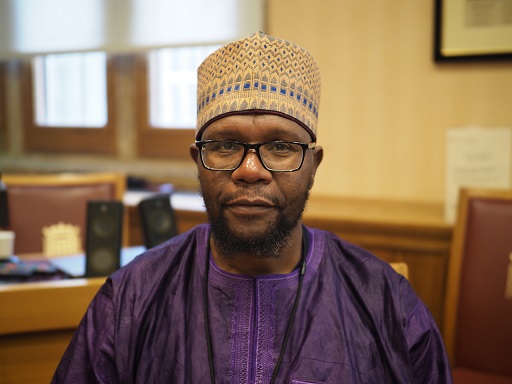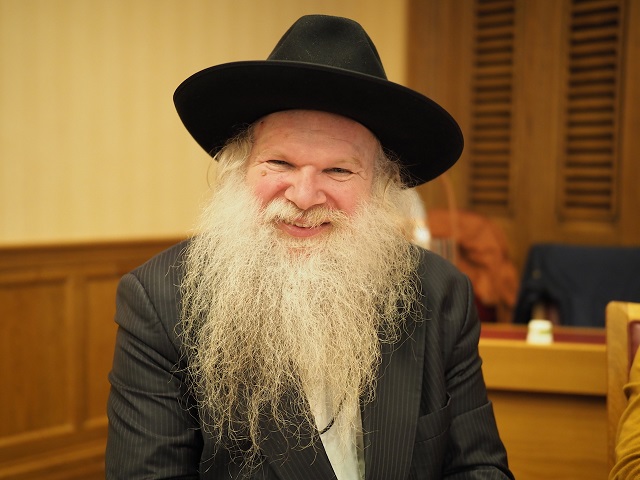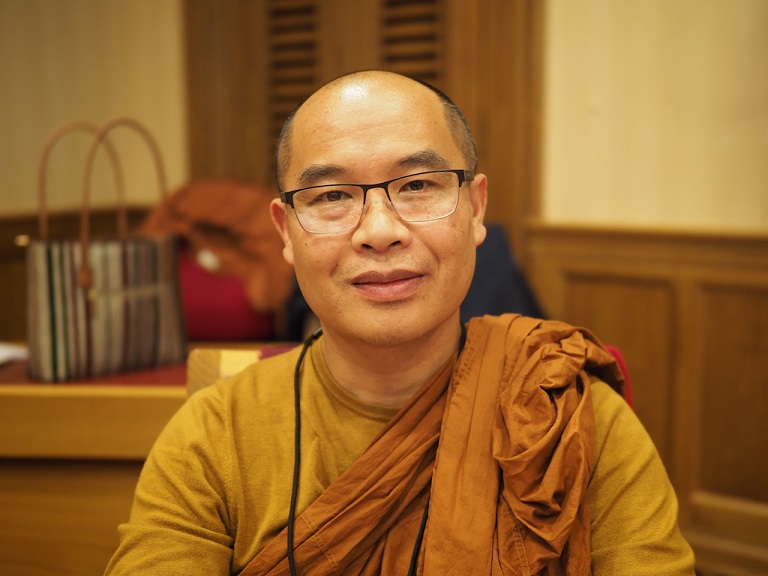
Imam Ali Omar
Speaking for Islam, Imam Ali Omar shared:
“The month of Ramadan is the month of the fasting. What fasting means in Islam is to wake up before dawn, to have a light meal, drinks, say some prayers, and from the time the sun rises you abstain from eating and drinking, including water, until sunset.
“As Imam of Her Majesty’s armed forces, as part of the chaplaincy team, I was speaking to one of my colleagues from the Christian faith, he once asked: Imam I know you are fasting and observing your fast, so which drink shall I make for you that will not affect your fast. I said reverend if you give me any drink that’s it (my fast is broken). As I’m fasting there is no eating and no drinking until sunset.
“Fasting brings worshippers together. It brings us closer to God. It is a period of reflection and sacrifice. It is a month where Muslims become very generous and they donate a lot to humanitarian causes.”

Rabbi Herschel Gluck
Speaking for Judaism, Rabbi Herschel Gluck shared:
“Fasting in Judaism goes back to the very beginning of the Jewish faith. When Moses was about to receive the tablet from God, after the Jews had sinned with the golden calf, he spent 40 days in heaven. And for those 40 days, he did not eat and he did not drink. And he came down back to the people on the tenth day of the Jewish month of Tishrei. And we granted a special day in the Jewish calendar, Yom Kippur, and the Day of Atonement.
“The day of atonement is the most important Jewish fast. One we pray five times, which is unique in the Jewish year, and we abstain from five methods which we are usually allowed to do. We do not eat, we do not drink, we not bake, we do not anoint ourselves with creams, and we are celibate.
“Yom Kippur is the day when we meant to repent. We are meant to repent about sins between man and God and man and man, between one person and another. And the emphasis is on repenting on how we sin against someone else.
“Fasting is about self-restraint. It is like a sacrifice. That we are giving God our acts, we’re giving something. It is about depriving ourselves and giving back to another person. This is why when it comes to fast there is a practice on zakat, on giving to another. The intention is to reduce our ego, our obsession with self and be able to give to someone else.”

Venerable Pannyawamsa
Speaking for the Buddhist religion, Venerable Pannyawamsa, shared:
“Different forms of fasting are practiced in various Buddhist traditions. Traditional Buddhist monastics follow (some) rules applied in the various Vinyas, where one must not eat after the noon meal. The period thereafter is to be used for meditation or chanting. Breaking this rule is considered to be an offense which should be confessed.
“It is generally not considered as a type of fasting but a moderate form of eating. And sometimes laypersons will also follow these rules during certain periods of religious observance.”
Pages: 1 2 3